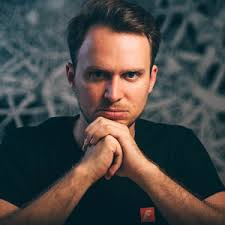1. Please tell us a bit about yourself, both at work and leisure.
Hi, I am Julian and co-founder of Fractal Blockchain. We build ID and payment solutions for the decentralized web with a focus on usability and compliance. I have been interested in alternative and open financial systems after seeing the financial crisis first hand at Deutsche Bank. I then did early research on Crowdfunding at Zeppelin University. I am a news junkie and into politics.
2. Which services do you sell and who are your competitors?
We build software for a great onboarding and identification process, which is especially demanding in a truly international market like the blockchain space. We also build the payment infrastructure to enable our clients to collect funds using smart contracts. Coinlist and Token Foundry offer similar infrastructure, but lack the ID component that stand-alone provider like ID Now offer in Europe.
3. How did you get your startup idea and how did you go about launching it?
I saw the big promises that were made in crypto and took a pragmatic approach of trying to find out what is missing. I did not have to go far and stopped with a compliant and usable onboarding process. We quickly found our first customer Ocean Protocol and build the first version pretty much for them.
4. How did you finance your startup, and what learnings would you like to share from the fund-raising journey?
We were able to acquire the first customer early and generated a positive cashflow early on. However, my mentor kick started the company and helped a lot. We later could excite other angels and raised a Seedround with funds coming from Coparion and Innogy.
5. What areas within FinTech do you personally find most interesting and why?
I am naturally most interested in identity solutions as they are the key to an open finance ecosystem.
6. What opportunities do you see for FinTech startups in Continental Europe, and how can we help?
Blockchain technology is a huge opportunity for FinTech. Europe is well equipped to take up this chance as it has a unique history of a diverse landscape and compromise. While the technology creates a worldwide public market even for small volume assets, it will take a while for national regulation to take a coherent international approach. Until then a lot of talent is needed to take into account different regulations and user expectations.
7. What tip would you like to give FinTech entrepreneurs?
Don’t set yourself up for a local market, but start with a global solution right away. The Scandinavian founders understood that early on

